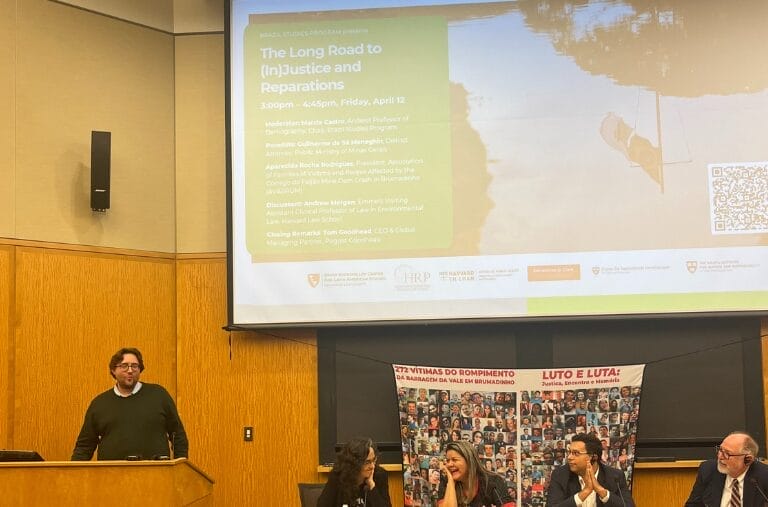On 2 November 2022, Dutch members of parliament submitted an updated version of the Bill for Responsible and Sustainable International Business Conduct (in Dutch: de Wet verantwoord en duurzaam internationaal ondernemen) to the House of Representatives of the Netherlands (the RSIBC Bill; an unofficial English translation can be accessed here).
The RSIBC Bill aims to enhance compliance with the OECD Guidelines for Multinational Enterprises (the OECD Guidelines) by introducing statutory obligations for certain (large) undertakings in relation to international responsible business conduct. The RSIBC Bill also intends to encourage the advancement of ambitious EU rules on such conduct, to be included in the potential Corporate Sustainability Due Diligence Directive (for which the European Commission submitted a draft proposal in February 2022).
In this blogpost, we will briefly set out the key aspects of the RSIBC Bill and provide a short commentary focused on the scope and civil enforcement of the proposed legislation.
Key aspects of the RSIBC Bill
In short, the RSIBC Bill aims to impose a general duty of care on all undertakings and due diligence obligations on large undertakings in respect of responsible and sustainable international business conduct.
General duty of care for all undertakings
The RSIBC Bill intends to impose a general duty of care on all undertakings both in and outside the EU regardless of their size,[i] for which it uses the definitions of ‘undertaking’ and ‘foreign undertaking’ laid down in section 1.1(l)[ii] respectively section 1.1(c)[iii] of the RSIBC Bill. Both (EU) undertakings and foreign undertakings (to the extent they engage in activities in the Netherlands[iv]) which know or should reasonably suspect that their activities may have a negative impact on human rights, labour rights or the environment in countries outside the Netherlands, must take all reasonable measures to prevent, mitigate or reverse such impacts and, where necessary, enable remediation.[v] If such impacts cannot be sufficiently mitigated, the undertaking must refrain from the relevant activity or terminate the relevant relationship.[vi]
Due diligence obligations for large undertakings
Furthermore, pursuant to the RSIBC Bill, large[vii] undertakings (both domestic/EU and foreign)[viii] must exercise due diligence in their value chains. This due diligence obligation is detailed in six steps (briefly set out below):
– Draft, publish and implement a policy document to be prepared in consultation with stakeholders, experts and business relationships.[ix]
– Investigate, analyse and assess the risks of adverse impacts on human rights, climate change and the environment in their own activities and business relationships.[x]
– Ensure that the detected risks of adverse impacts on human rights and the environment are adequately tackled (for which an action plan and a climate plan must be drafted).[xi]
– Monitor the application and effectiveness of their policy and measures of due diligence.[xii]
– Report annually on policy and measures of due diligence (inter alia on the execution of the action plan and the climate plan) and publish the report in an accessible manner by 30 April of every calendar year.[xiii]
– Take remediation measures in relation to the undertaking’s adverse impacts on human rights and/or the environment.[xiv]
Enforcement
The RISBC Bill charges the Dutch Authority for Consumers and Markets (ACM) with the supervision and the (administrative) enforcement of compliance with the RISBC Bill.[xv]
The ACM may impose an administrative penalty of up to 10% of the net turnover of the undertaking, an administrative order (last onder bestuursdwang), an order subject to a penalty (last onder dwangsom), and/or may publish its decision to impose such sanctions.[xvi] In addition, the RISBC Bill criminalises the failure of large undertakings to observe the reporting obligations (see above at (5)) under Section 2.6.1 under the Economic Offenses Act (Wet Economische Delicten), per 1 July 2025.[xvii]
Aside from administrative and criminal enforcement, the RISBC Bill also facilitates civil enforcement. First, the RSIBC Bill stipulates[xviii] that a collective claim brought by a claims organisation[xix] against an undertaking[xx] or a large foreign undertaking engaged in activities in the Netherlands[xxi], will meet the so-called ‘scope rule’ introduced by the new class action regime in the Netherlands, called the ‘WAMCA’.[xxii] The scope rule provides that the legal action under the class action regime must have a ‘sufficiently close connection’ to the Dutch legal sphere for the claims organisation to be admissible (Scope Rule).[xxiii]
Second, in respect of claims for damages resulting from an adverse impact on human rights or the environment, the RSIBC Bill shifts the burden of proof towards the defendant with regards to the fulfilment of its obligations under the RSIBC Bill.[xxiv] Contrary to the general distribution of the burden of proof under Dutch law, this means that if the claimant puts forward facts giving rise to a suspicion of a link between the defendant’s activities and adverse impact on human rights or the environment, it will be up to the defendant to prove that it complied with the obligations set out in the RSIBC Bill (the Burden of Proof Rule).[xxv]
Third, the Burden of Proof Rule is an overriding mandatory provision within the meaning of Article 16 of the Rome II Regulation, meaning Dutch courts must apply this rule, even if the claim is not governed by Dutch law.[xxvi]
The RSIBC Bill would – if adopted – largely enter into force on 1 July 2024, but the provisions on enforcement by the ACM would enter into force on 1 January 2025, and the provisions on civil enforcement would enter into force on 1 July 2025.[xxvii]
Commentary
The RSIBC Bill’s ambition to impose mandatory due diligence obligations and a general duty of care in relation to international business conduct should be welcomed, as the current policies – based on voluntary compliance – are insufficiently effective at making value chains more ethical and sustainable.[xxviii]
However, the RSIBC Bill does leave room for improvement. In particular, the scope of the RSIBC Bill needs further clarification.
While, according to the explanatory memorandum, the proposal intends to impose a general duty of care on all undertakings, the current wording of (the definitions of) the RSIBC Bill excludes small and medium-sized non-EU undertakings,[xxix] as well as large (multinational) foundations and associations.[xxx]
Hence, on the one hand, it appears that the current scope is too narrow. On the other hand, the RSIBC Bill imposes obligations on certain undertakings which do not have any presence in, connection or involvement with the Netherlands (e.g. regulated financial undertakings irrespective of where they are based or regulated and non-Dutch EU undertakings).[xxxi] To the extent that these inclusions or exclusions from the scope are intentional, it would be good to better understand the legislator’s rationale behind them.
The rationale behind the RSIBC Bill’s provisions on civil enforcement is clear. By stipulating that the Scope Rule will be met in class actions against certain undertakings[xxxii] regarding human rights violations and environmental damages, wherever they occur, the legislator recognises the need to facilitate civil enforcement of such claims through class actions. Accordingly, if the proposed legislation is adopted, the Scope Rule will no longer preclude future claims such as the ones made in the Braskem Case and the Norsk Hydro Case from being brought as WAMCA class actions.[xxxiii] The legislator thus also eliminates one of the possible defences based on the Scope Rule to be raised by defendants, as part of a strategy they may use to try to stay proceedings.
Hence, with regard to these cases, the RSIBC Bill takes a first step in addressing concerns that the preliminary phase under the WAMCA may take too long, causing an unnecessary delay before getting to the merits of the case. The RSIBC Bill also strengthens the position of claimants (in both individual and collective proceedings) by codifying unwritten duties of care into statutory duties, thereby making tort claims based on breaches of such duties more straightforward.
The application of the Burden of Proof Rule further strengthens the position of claimants. It is evident that the legislator has thus put significant emphasis on enhancing civil enforcement in respect of international business conduct. This is a positive development, which should be applauded given the existing hurdles preventing injured parties from obtaining justice.[xxxiv]
References
[i] Explanatory memorandum to the RSIBC Bill, p. 17, 23 and 37. [ii] Section 1.1(l) of the RSIBC Bill defines undertaking as follows: ‘‘1°. a legal person having one of the legal forms listed in Annex I to the Accounting Directive; 2°. a legal person having one of the legal forms listed in Annex II to the Accounting Directive, fully consisting of undertakings having a legal form as referred to in 1°; 3°. a regulated financial undertaking, regardless of its legal form; including any subsidiary undertakings.’’ Accordingly, this definition includes – roughly speaking – any limited liability undertakings, general partnerships and limited partnerships established in the EU, and any regulated financial companies, including subsidiaries. [iii] Section 1.1(c) of the RSIBC Bill defines foreign undertakings as follows: ‘‘an undertaking that has not been incorporated under Dutch law or the law of another European Union Member State and whose registered office is located outside the Netherlands and other European Union Member States’’. [iv] Section 1.3(1) of the RSIBC Bill. [v] Section 1.2 of the RSIBC Bill. [vi] Section 1.2 of the RSIBC Bill. [vii] To qualify as large, an undertaking must meet at least two of the three following criteria: (i) a balance sheet total of at least EUR 20m; (ii) a net turnover of at least EUR 40m; and (iii) an average number of at least 250 employees during the financial year. See section 1.1(g) of the RSIBC Bill. [viii] Section 2.1.1 in conjunction with section 1.3 of the RSIBC Bill. See also the abovementioned definitions of ‘undertaking’ and ‘foreign undertaking’ laid down in section 1.1(l) respectively section 1.1(c) of the RSIBC Bill. [ix] Sections 2.2.1 and 2.2.2 of the RISBC Bill. [x] Section 2.3 of the RSIBC Bill. [xi] Sections 2.4.1 – 2.4.4 of the RSIBC Bill. [xii] Section 2.5.1 of the RSIBC Bill. [xiii] Section 2.6.1 of the RSIBC Bill. [xiv] Section 2.7.1 and 2.7.2 of the RSIBC Bill. [xv] Sections 3.1.1 – 3.2.4 in conjunction with Section 1.1(q) of the RSIBC Bill [xvi] Sections 3.1.2 – 3.2.4 of the RSIBC Bill. [xvii] Section 3.2.5 of the RSIBC Bill. [xviii] Section 3.2.6 of the RSIBC Bill. [xix] More specifically, organisations referred to in Section 3:305a of the Dutch Civil Code whose objectives under the articles of association are to promote the interests of human rights or the environment. [xx] See footnote ii above for the definition of ‘undertaking’ laid down in section 1.1(l) of the RSIBC Bill. [xxi] See section 1.3 in conjunction with section 1.1(c) of the RSIBC Bill (which contains the definition of foreign undertaking set out above in footnote iii). [xxii] The WAMCA is an abbreviation for the Dutch name of the legislation, Wet afwikkeling massachade in collectieve action (translated: Resolution of Mass Damage in Collective Action Act). The WAMCA entered into force on 1 January 2020. [xxiii] Article 3:305a(3)(b) of the Dutch Civil Code. [xxiv] Section 3.2.6(2) of the RSIBC Bill. [xxv] Section 3.2.6(2) of the RSIBC Bill. [xxvi] Section 3.2.6 (3) of the RSIBC Bill [xxvii] Section 4.5 of the RSIBC Bill. [xxviii] See also the Dutch government’s non-paper dated November 5 November 2021, which can be accessed here. [xxix] As section 1.3(1) of the RSIBC Bill only refers to ‘large’ foreign undertakings (see also the definitions laid down in sections 1.1(c) and 1.1(g) of the RSIBC Bill). [xxx] As the abovementioned definition of undertaking laid down in Section 1.1(l) of the RSIBC Bill, does not include foundations nor associations, but – roughly speaking – only limited liability undertakings, general partnerships and limited partnerships established in the EU, and any regulated financial companies, including subsidiaries. See footnote ii above. [xxxi] Sections 1.2, 1.3 and 2.1.1 in conjunction with the relevant definitions set out in sections 1.1(c) and 1.1(l) of the RSIBC Bill. [xxxii] More specifically, an undertaking or a large foreign undertaking engaged in activities in the Netherlands. See sections 3.2.6(1) in conjunction with sections 1.1(l), 1.1(c), 1.1(g) and 1.3(1) of the RSIBC Bill. [xxxiii] For further background information regarding these cases, see: https://pogustgoodhead.com/victims-of-brazils-sinking-city-receive-positive-news-to-have-case-heard-in-the-netherlands/; and https://litigationfinanceinsider.com/norsk-hydro-case-another-step-towards-justice/. The recent judgment of the district court of Rotterdam dated 21 September 2022, ECLI:NL:RBROT:2022:7549 regarding the Braskem Case can be accessed here. The recent judgment of the district court of Rotterdam dated 19 October 2022, ECLI:NL:RBROT:2022:8625 regarding the Norsk Hydro Case can be accessed here. [xxxiv] See e.g. Enneking 2015, Zorgplichten van Nederlandse Ondernemingen inzake Internationaal Maatschappelijk Verantwoord Ondernemen, p. 428 – 430 in which several hurdles for civil enforcement under Dutch law are described (the publication (in Dutch) can be accessed here).










